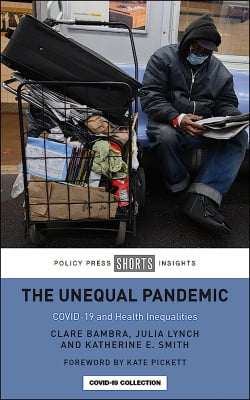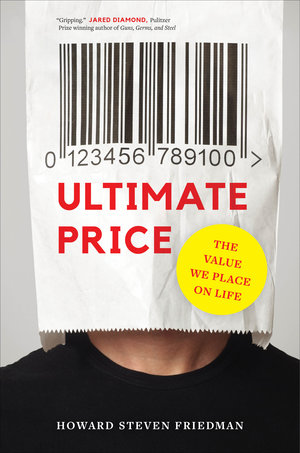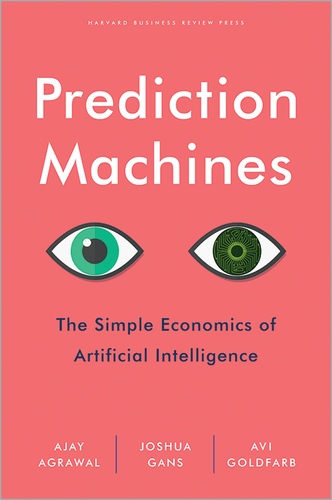THE UNEQUAL PANDEMIC COVID- 19 and Health Inequalities
30 de setembre 2021
29 de setembre 2021
The pandemic in US
Uncontrolled Spread. Why COVID-19 Crushed Us and How We Can Defeat the Next Pandemic
New book by Scott Gottlieb , former FDA comissioner
COVID revealed dangerous gaps in the US public health preparedness, medical infrastructure, and healthcare system. We lacked the public health capacity and resiliency we thought we had. In the most advanced healthcare system in the world, we ran out of medical masks. We had to retrofit anesthesia machines and turn them into respirators. We didn’t have enough swabs to collect samples from patients’ noses.
Our system was set up well to handle singular, technology-intensive, and complex problems like developing a novel vaccine or antibody drugs. We do this better than anyone. But it faltered when we were faced with more mundane problems like manufacturing those vaccines in bulk, deploying testing centers, or making nose swabs to collect respiratory samples. When we finally developed safe and effective therapeutics and vaccines that could treat or prevent infection, we couldn’t manufacture enough of them in time to supply the nation for the winter surge. We had to set up elaborate rationing schemes. Then, we were unable to establish an efficient distribution plan. Antibody drugs went unused because we couldn’t deliver them.
The virus made clear that we’ll need to fundamentally alter the way we approach all of these risks. If we don’t, our society will remain excessively vulnerable. For starters, we’ll have to lean much more on our intelligence agencies, and in a different fashion. International agreements alone haven’t provided us with the information we need about emerging threats. There’s little reason to believe they’ll perform much better in the future. The devastation caused by the pandemic proved that these risks, and our preparedness for them, is a matter of national security on par with other threats. We’re going to have to build the capacity to seek out the information we need to protect ourselves. Sometimes that will demand that we avail ourselves of the tools and tradecraft of our clandestine services. The challenge will be to maintain collaboration and multilateral efforts even as we turn more heavily toward intelligence services to guard against the risk of new contagions.
27 de setembre 2021
26 de setembre 2021
25 de setembre 2021
The value of life
Ultimate Price. THE VALUE WE PLACE ON LIFE
How much is a human life worth? The question’s complexity resides in the fact that how we arrive at a price tag on human life says a great deal about our priorities. The price tags, and the methods used to develop them, are a reflection of our values as a society. They are infused with influences from economics, ethics, religion, human rights, and law.
Ideally, there would be a simple answer of how to value a human life that most people could agree on. Yet there is no such answer. The philosopher Isiah Berlin stated that humans have a “deep and incurable metaphysical need” to search for timeless truth that does not exist.
The task of valuing life has many competing truths and no simple answer. Readers may find it frustrating that we cannot conclude with one key bullet point or a single take-home message about how human life is valued, but topics as complicated as this often cannot be boiled down to one pithy solution that satisfies nearly all interested parties.
Some take the philosophical perspective that human life is priceless.2 Individuals who take this stance conclude that the question of how much a human life is worth is meaningless or unanswerable. However intellectually satisfying, this perspective ignores the reality that human life is constantly being monetized and that this should therefore be done in an equitable way.
This book has taken the pragmatic approach of focusing on the real-world methods of how life is valued and the implications and limitations of these methods. The prices depend on who is doing the valuation, the methods they are using, the purpose for the valuation, and quite often, whose life is being valued.
24 de setembre 2021
23 de setembre 2021
Incentives in digital health
Paying for Digital Health Care — Problems with the Fee-for-Service System
From NEJM:
Without payment-system changes, we can expect to have many unhappy patients and physicians struggling with this complex payment labyrinth. Only a payment system that encompasses some form of capitation will eliminate these issues.
The status quo isn’t viable, the current approach that relies on determining payments for each type of digital interaction is destined to fail because such interactions aren’t distinct services that can be easily differentiated. Unless we move rapidly toward capitated models, the health care system will continue to deliver suboptimal, non–patient-centered care that fails to harness the potential of the technology that exists all around us.
PS . Topol on value-based care: It’s a joke, value-based care. Basically, we have one-third of the healthcare, but $3.6 trillion is waste—low-value care. We need to stop that. That’s part of why it’s so costly. And so this whole idea of value-based care doesn’t even get to it. There’s a long list of hundreds of things that each of the professional societies have called out as being shouldn’t be done anymore. And we’re doing it every day, you know, thousands, hundreds of thousands of times, every day and week in this country. We have to get rid of the waste and inappropriate and unnecessary care and we haven’t done anything to do that here of note.
Palermo, 1963
22 de setembre 2021
Claiming for global regulation of genome editing (2)
HUMAN GENOME EDITING:RECOMMENDATIONS
Last July the WHO Expert Advisory Committee on Developing Global Standards for Governance and Oversight of Human Genome Editing released its recommendations. This is a crucial document that all governments should take into account and develop its specific regulation. Time is running out
The Committee produced a series of recommendations in nine discrete areas: 1. Leadership by the WHO and its Director-General; 2. International collaboration for effective governance and oversight; 3. Human genome editing registries; 4. International research and medical travel; 5. Illegal, unregistered, unethical or unsafe research and other activities; 6. Intellectual property; 7. Education, engagement and empowerment; 8. Ethical values and principles for use by WHO and 9. Review of the recommendations.
21 de setembre 2021
Business as usual is unacceptable in a pandemic
What are the obligations of pharmaceutical companies in a global health emergency?
Timely article by Ezequiel Emanuel et al. in The Lancet:
Pharmaceutical companies have special obligations in this emergency, which follow from their indispensable capacity to help to end the pandemic by developing, manufacturing, and distributing COVID-19 vaccines. However, the capacity to help alone does not fully specify companies’ obligations. Additionally, market-based arrangements, with patents, marketing exclusivity, and confidentiality clauses, give pharmaceutical companies the freedom to choose what treatments to research and develop, how to price and distribute their products, and whom to furnish with products through bilateral agreements.9 Indeed, companies need not produce vaccines or infectious disease therapies at all. Patents and exclusivity, alongside the absence of price controls or requirements for technology transfer, also permit companies to charge higher prices than they otherwise could. Governments adopt intellectual property rights, limited pricing regulations (ie, each country has its own pricing, with no one countrycontrolling the pricing, at most being able to set limits on the prices that can be charged), trade agreements, and other limited interventions (eg, manufacturing, inspections of facilities, etc) in the hope of incentivising the development, manufacturing, and distribution of socially valuable products. Everyone—including pharmaceutical companies— agrees that business as usual is unacceptable in a pandemic.
Ethical obligations:
20 de setembre 2021
Misguided proposals
Prices send signals about consumer preferences and thus stimulate producers to make more of what people want. Pricing in a pandemic is complicated and fraught. The policy puzzle involves balancing lower prices to ensure access to essential medications, vaccines, and tests against the need for adequate revenue streams to provide manufacturers with incentives to make the substantial, risky investments needed to develop products in the first place. We review alternative pricing strategies (cost recovery models, monetary prizes, and advance market commitments) for coronavirus disease 2019 (COVID-19) drugs, vaccines, and diagnostics.
All these stuff on consumer preferences is useless under a pandemic. We are all at risk, and this systemic risk has to be solved "systemically", by the government. It is not an issue of individual preferences. Forget value based in systemic risk events. Forget this misguided article.
18 de setembre 2021
The right to healthcare access
Population Health and Human Rights
From NEJM article:
The study of population health encompasses two main objects of analysis: the health conditions affecting a population (the frequency, distribution, and determinants of diseases and risk factors) and the organized social response to those conditions, particularly the way in which that response is articulated in the health system, including the principles and rules that determine who has access to which services and at what cost to whom. These services include both clinical and public health interventions. Since the 19th century, national health systems have sought to provide health services to an increasing proportion of the population, using four eligibility principles: purchasing power, poverty, socially defined priority, and social rights. Reliance on purchasing power means that access is determined by ability to pay, with governments limiting their role to basic regulation. Because this principle excludes many people, governments have historically intervened to expand access, either through public assistance programs covering families with incomes below a predetermined level or through social insurance schemes for prioritized groups (e.g., the armed forces, industrial workers, civil servants, or older adults). All these eligibility principles result in only partial coverage, but the ideal of universality has influenced public policy in most countries, though the design and performance of health systems vary widely.
17 de setembre 2021
Theranos on trial
Podcast: 'The Dropout: Elizabeth Holmes on Trial'
ABC News' #1 podcast is back with new episodes, available on Tuesdays.
Money. Romance. Tragedy. Deception. The story of Elizabeth Holmes and Theranos is an unbelievable tale of ambition and fame gone terribly wrong.
You'll find it in Spotify every week
16 de setembre 2021
Health expenditure after COVID
Right now we know the impact of COVID on health expenditure and the rise has been of 18%, the largest increase ever. We spent 1.786€ per capita in 2020 , 271€ more than in 2019 (1.515€).
Public expenditure on health by catalan government was 13.392M€ in 2020 (provisional data), while in 2019 11.531M€ . We spent 48€ per capita on PCR tests in 2020.
Until June 30 2021, the Health Department has executed an amount of € 5.918M, lower than in 2020 by € 257.8 million. We will have to wait for the end of the pandemic to have the final estimates of expenditure.
And now, what's next? Is this only a shock or it will remain consolidated for the future?. Place bets.













